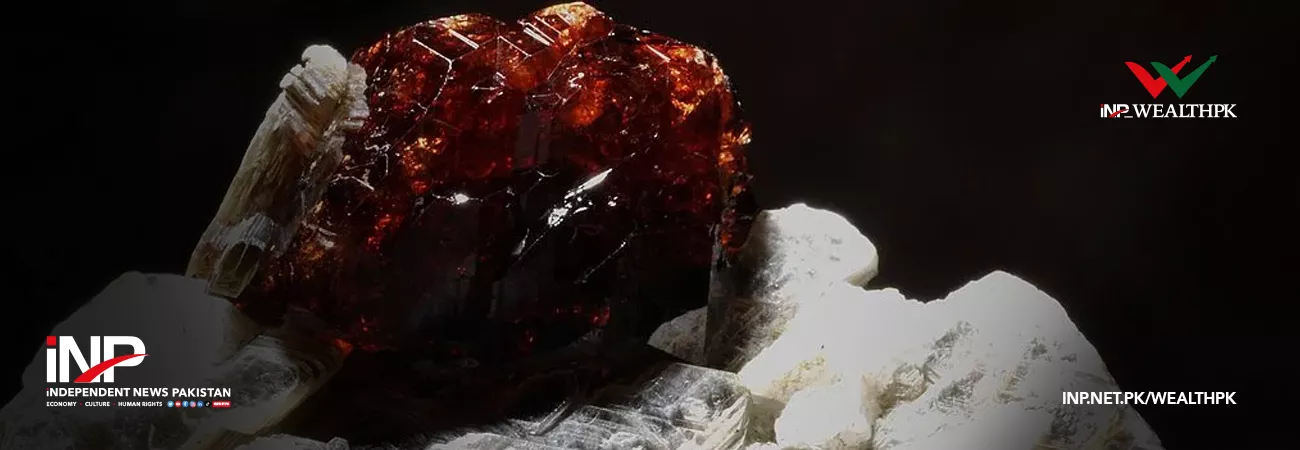INP-WealthPk
Faiza Tehseen
Pakistan imports a host of industrial items made from corundum, spending sizable foreign exchange despite that it has rich deposits of this rock-forming mineral in Khyber Pakhtunkhwa and Northern Areas, reports WealthPK.
Corundum, both natural and synthetic, are used in a variety of industrial applications due to its chemical stability, durability, toughness, and hardness.
It ranks 9th on Mohs’ scale of hardness and can easily scratch almost anything. Other than its use in jewelry, corundum is widely used in different industries, i.e., manufacture of different types of abrasives, grinding of optical glass, metal polishing, grinding wheels, sand/emery papers, industrial bearings, circuit board wafers, scratch windows for electronic instruments, nail files, belt sanders, etc. It is also used as the refractory lining and in laser beam technology.
Talking to WealthPK, Principal Geologist at the Global Mining Company, Islamabad, Member of the National Council for Marble & Granite and Minerals, and former GM Geology at the Pakistan Mineral Development Corporation Muhammad Yaqui Shah said, “Corundum is the crystalline form of Aluminum Oxide and is found in almost every type of rock formation. After diamond, it is the second hardest gem. Typically, it contains traces of titanium, vanadium, iron, chromium, etc. Its variety in colors depends upon the presence of transitional metal impurities. Due to its vast range of colors, it is the most widely demanded gem. Ruby and sapphire are the most famous varieties of corundum, while colorless corundum is largely used for industrial purposes.
Being chemically inert, scratchless and heat-resistant, it is ideal for many industrial applications. Its bearings are especially used in expensive mechanical watches. In Pakistan, its colorful and expensive varieties are found in Hunza, Kaghan, and Shigar, while colorless formations are abundantly found in Dir.”
In a discussion with WealthPK, the Production Plant Manager of Falcon Abrasives, Karachi, Syed Imran Ali Bukhari said, “It is true that we largely import abrasive materials to manufacture different varieties of abrasives. Crushing of garnet, silica/quartz sand, corundum, etc in different mesh is used to produce them which are locally available in large quantities but are not available in the processed form. Now, many foreign investors with the coordination of local people are producing the processed raw material in Manghopir and Mash Goth in Karachi through advanced units. However, production from these units is limited. To enhance production, its active industry must be established. This will help cut both import and production costs and our local industrialists will get qualitative products at low rates. In this way, not only can domestic needs be fulfilled, but excess products can also be exported, as abrasives are a regular part of most of the production units.”
Imran said right now they were producing cloth-based abrasive sheets, paper-based abrasive sheets, buffing belts, etc.
He said there was no lack of sources in Pakistan, but if the power was subsidised, a lot of raw material processing could be done locally.
He said the government must check the trafficking of many materials for a vast number of industrial products along with the mixed declaration of excise duty items.
“It is important to strengthen our domestic industry. The government must provide a proper follow-up to the local production units in the search for new markets. The production will then increase, which will reduce the cost almost to zero,” he added.
Credit : Independent News Pakistan-WealthPk




